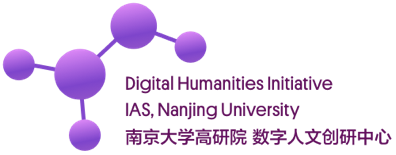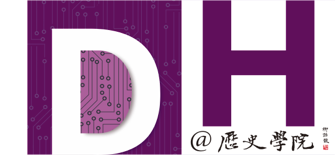“定义数字人文”学术工作坊 Workshop on Defining Digital Humanities
Date: 2019-10-28
“定义数字人文”学术工作坊
Workshop on Defining Digital Humanities
2019年11月8日
November 8, 2019
南京大学仙林校区
Xianlin Campus, Nanjing University
主办方/Organizer:
南京大学高研院数字人文创研中心
Digital Humanities Initiative, IAS of Nanjing University

协办方/Co-Organizers:
南京大学数字历史研究中心
Research Center for Digital History, Nanjing University

数字人文与超媒体GIS工作室
Digital Humanities & Hypermedia GIS Studio

资助方/Sponsor:
南京大学国际处“2019国际战略合作伙伴计划”
Office of International Cooperation and Exchange

数字人文是否需要被定义?我们是否需要定义数字人文?作为一个新兴的多学科、跨学科研究领域,数字人文的定义一直是一个模糊不清的问题。一方面,很多学者甚至认为不对数字人文进行界定有助于保持数字人文的活力和内在丰富性。但另一方面,随着领域的扩展,没有或者模糊定义也造成了相当的困惑和争议:比如,在讨论就数字人文与数字图书馆/数字学术之间的差别,数字人文评价机制,以及究竟谁在主导数字人文等问题时,如何定义数字人文实际上是这些问题的内在核心议题。此次“定义数字人文”国际工作坊邀请了国内外各个学科的数字人文学者就“定义数字人文”议题进行讨论,旨在对全球蓬勃兴起的“数字人文”所具有的核心内涵以及可能存在的边界划定进行讨论和厘清,尤其是从中国语境出发,对数字人文的定义问题进行讨论、交流,并对全球尤其是西方语境中的数字人文提出中国学术视角下的反思路径。
此次工作坊同期将召开“数字人文研究系列丛书”系列暨“《定义数字人文》(中文版)新书发布会”。该书英文版主编Melissa Terras、Edward Vanhoutte,中文翻译团队将共同出席发布会并参加国际工作坊的讨论。
Do digital humanities need to be defined? Can we define digital humanities? As a new multi-disciplinary and interdisciplinary field of research, digital humanities has always been facing the prob-lem of its ambiguous definition. On the one hand, many scholars claim that such a specific definition would limit the vitality and inner richness of the digital humanities. On the other hand, with the ex-pansion of this research field, the ambiguous definition could have caused considerable confusion and controversy. For example, when discussing topics like the difference between digital humanities and digital libraries/ digital sciences, the evaluation system of digital humanities, and the orientation of dig-ital humanities, we cannot sidestep the inherent problem, the definition of digital humanities. This In-ternational Workshop on Defining Digital Humanities has invited international scholars from differ-ent disciplines to discuss the definition of digital humanities, aiming at discussing and clarifying the core connotation and potential boundary of digital humanities worldwide, and trying to discuss these issues in the context of Chinese especially, and to offer a Chinese academic answer as a reflection to the problem of digital humanities in the global or western-oriented context.
The workshop will include a book launch session Digital Humanities Series - Defining Digital Hu-manities (Chinese version). The editor of the English version Melissa Terras, Edward Vanhoutte, and the Chinese translation team will jointly attend the book launch and participate in the international workshop.
工作坊议程Agenda:
11月7日 外地学者入住:南京大学国际会议中心(南京大学仙林校区内)
11月8日 地点Location: 仙林校区国际学院高研院C308
上午 Morning
10:00 新书发布会 Book Launch
11:00 主题演讲 Keynote Speech
Melissa Terras: Inviting AI into the Archives:
From Crowdsourcing to Handwriting Recognition
(档案工作引进人工智能技术:从人工外包到手写识别)
We are now at the turning point of Inviting AI into the archives for a growing range of archival tasks. Libraries and archives are investing in mass digitisation of their manuscript collections but until recent-ly the textual content of the resulting digital images was only available to those with the resources to manually transcribe individual passages. Computational approaches to process and search images of his-torical papers by Handwritten Text Recognition (HTR) will transform access to our written past for the use of researchers, institutions and the general public. Since 2011, EU funded research into this ma-chine learning approach for automatic generation of transcripts from digitised images of historical text has resulted in software – Transkribus (https://transkribus.eu/Transkribus/) – which is now capable of generating transcriptions of up to 98% accuracy. Transkribus now has 25,000 users, including individu-als, and major libraries, archives and museums worldwide. This paper will cover the development of Transkribus, and how training data derived from volunteers using Transcribe Bentham provided the groundwork that enabled us to build our HTR system.
当前我们的档案工作正在进入人工智能辅助时期,图书馆和档案馆正在对手稿收藏进行大规模的数字化投资,但是这些数字图像的文本内容至今只有资源占有者才能获取抄用。手写文本识别技术(HTR),可以用以处理搜索历史文献图像,这种计算方法的出现将转变研究人员、机构和大众使用历史文献的路径。自2011年以来欧盟一直资助计算机学习算法的研究,旨在将数字化的历史文本图像自动生成转录本,目前已经设计出转录准确率高达98%的Transkribus软件,吸引了世界各地25,000名用户。本次讲座将介绍Transkribus的开发,以及如何从志愿者的使用经验中修正数据,从而为我们构建HTR系统打下基础。
下午 Afternoon
2:00-6:00 “定义数字人文”国际工作坊 Workshop on Defining Digital Humanities
讨论议题:
•数字人文是否需要被定义
•数字人文与组织机构联盟
•数字人文与学术期刊
•数字人文与教学
•数字人文的评价机制
•数字人文与数字文学、史学、哲学等分支概念间的关系
•数字人文与人文学的关系是冲突或协作
•数字人文与大数据、人工智能间的关系
•数字人文与计量研究法:相同或相异
Issues:
Digital Humanities Need to be Defined or Not
Digital Humanities and Organization & Institution Alliance
Digital Humanities and Academic Journal
Digital Humanities and Education
Digital Humanities and Evaluation System
Digital Humanities or Sub-discipline of Humanities
Digital Humanities and Literature: Conflict or Collaboration
Digital Humanities and Big Data & Artificial Intelligence
Digital Humanities and Quantitative methodology: Identical or Distinct
与会人员(按姓氏排序):
陈刚,南京大学地理与海洋科学学院
陈静,南京大学艺术学院
高瑾,英国伦敦大学学院
姜文涛,浙江大学国际联合学院
刘炜,上海图书馆
梁晨,南京大学历史学院
闵超,南京大学信息管理学院
裴雷, 南京大学信息管理学院
邱伟云,山东大学历史文化学院
Melissa Terras,爱丁堡大学
Edward Vanhoutte,英国伦敦大学学院
王军,北京大学信息管理系
王丽华,上海大学
王涛,南京大学历史学院
夏翠娟,上海图书馆
严程,清华大学人文学院
殷曼楟,南京大学哲学学院
赵薇,中国社会科学院文学研究所
Participants:
CHEN, Gang, School of Geography and Ocean Science, Nanjing University
CHEN, Jing, School of Art, Nanjing University
GAO, Jin, UCL Center for Digital Humanities
JIANG, Wen-Tao, the International Campus, Zhejiang University
LIU, Wei, Shanghai Library
LIANG, Chen, School of History, Nanjing University
MIN, Chao, School of Information Management, Nanjing University
PEI, Lei, School of Information Management, Nanjing University
CHIU, Wei-Yun, School of History and Culture, Shandong University
TERRAS, Melissa, College of Arts, Humanities and Social Sciences, University of Edinburgh
VANHOUTTE, Edward, University College London
WANG, Jun, Department of Information Management, Peking University
WANG, Li-Hua, Shanghai University
WANG, Tao, School of History, Nanjing University
XIA, Cui-Juan, Shanghai Library
YAN, Cheng, School of Humanities, Tsinghua University
YIN, Man-Ting, Department of Philosophy, Nanjing University
ZHAO, Wei, Institute of literature, Chinese Academy of Social Science